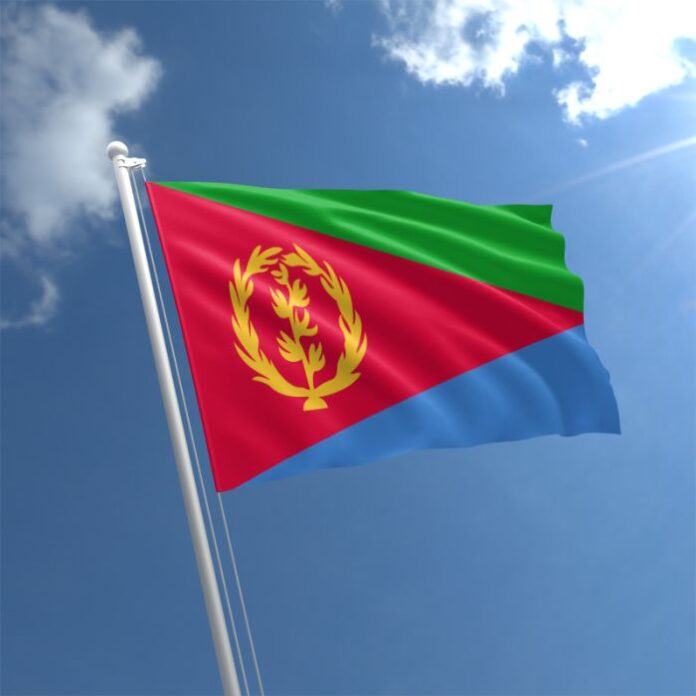In the realm of international development, few countries have taken as bold a stance as Eritrea, a small nation located in the Horn of Africa. In 2005, Eritrea made headlines by expelling USAID, the primary international aid agency of the United States, from its territory. This decision was part of a broader strategy by the Eritrean government to maintain national sovereignty and avoid dependency on foreign aid. Under the leadership of President Isaias Afwerki, Eritrea has pursued a path of self-reliance, with mixed outcomes that offer valuable insights into the complexities of foreign aid and national development.
Historical Context
Eritrea’s history is marked by colonialism, conflict, and a struggle for independence. The country was colonized by Italy in the late 19th century and later became part of Ethiopia after World War II. However, Eritreans sought independence, which they finally achieved in 1993 after a long and bloody conflict with Ethiopia3. This background of resistance and self-determination has shaped Eritrea’s stance on foreign intervention, including aid.
The Decision to Expel USAID
The decision to expel USAID was influenced by several factors. Eritrea had recently emerged from a devastating war with Ethiopia (1998-2000), which strained its relations with Western countries. The Eritrean government felt that Western donors, including the U.S., had sided with Ethiopia during the conflict. This perception of bias led to a distrust of foreign aid, which was seen as a tool for exerting influence and undermining national sovereignty1.
President Isaias Afwerki has consistently emphasized the importance of self-reliance, arguing that foreign aid can create dependency and undermine local initiative. In an interview, he noted, “If you need something, no one will do it for you; you must do it on your own”1. This philosophy has guided Eritrea’s development strategy, focusing on using its limited resources to build infrastructure, improve healthcare, and enhance education.
Impact of Expelling USAID
The expulsion of USAID has had both positive and negative impacts on Eritrea’s development.
Positive Outcomes
- Infrastructure and Public Services: Despite limited resources, Eritrea has made significant strides in infrastructure development, healthcare, and education. The country has improved child immunization rates and reduced maternal mortality, achievements that are notable given its economic constraints1.
- Avoiding Aid Dependency: By relying on its own resources, Eritrea has avoided the pitfalls of aid dependency, which can stifle local innovation and create economic vulnerability. This approach has allowed Eritrea to maintain control over its development strategies without external interference1.
Negative Outcomes
- Economic Challenges: Eritrea remains one of the most economically isolated countries in Africa, with stringent government control over industries and trade. This isolation has limited economic growth and exacerbated poverty1.
- Human Rights Concerns: The country faces severe human rights challenges, including compulsory military service, limited political freedoms, and a lack of access to higher education and modern technology1. Critics argue that Eritrea’s self-reliance strategy has come at the cost of democratic values and human rights.
Lessons from Eritrea’s Experience
Eritrea’s decision to expel USAID offers valuable lessons for both the country itself and the broader international community.
- Self-Reliance vs. Aid Dependency: Eritrea’s experience highlights the trade-offs between self-reliance and aid dependency. While avoiding foreign aid can preserve national sovereignty, it also means forgoing potential economic benefits and development opportunities that aid can provide.
- Challenges of Isolation: Eritrea’s economic isolation has limited its access to global markets and technologies, hindering its economic growth. This underscores the importance of balancing self-reliance with strategic engagement with the international community.
- Human Rights and Governance: The severe human rights challenges in Eritrea serve as a cautionary tale about the risks of authoritarian governance. While self-reliance can be a noble goal, it must be pursued in conjunction with democratic principles and respect for human rights.
Comparison with Other African Countries
In contrast to Eritrea, many African countries have leveraged foreign aid to drive development. Countries like Kenya, Ghana, and Rwanda have received substantial donor support, which has contributed to significant economic and social progress. These nations have managed to balance aid with national sovereignty, using external funding to enhance infrastructure, improve healthcare, and reduce poverty1.
However, the recent cuts in USAID funding under the Trump administration highlight the risks of dependency on foreign aid. The potential reduction in U.S. aid threatens to push millions of Africans into extreme poverty, underscoring the need for African countries to diversify their development strategies and reduce reliance on external assistance2.
Conclusion
Eritrea’s decision to expel USAID reflects a complex interplay of political, economic, and historical factors. While the country has achieved some development successes through self-reliance, its isolationist policies have also led to significant economic and human rights challenges. As the global aid landscape evolves, Eritrea’s experience serves as a reminder of the importance of balancing national sovereignty with strategic engagement and respect for human rights. Ultimately, the path to sustainable development requires a nuanced approach that leverages both internal resources and external support, while prioritizing democratic governance and human well-being.
References1 Limp-Manager-5354. (2025). Eritrea: The African Nation That Expelled USAID and Charted Its Own Path. Reddit.2 ISS African Futures. (2025). The toll of USAID cuts on Africa.3 Wikipedia. (2025). History of Eritrea.4 African Development Bank Group. (2024). Eritrea Economic Outlook.
George Prince
References:
- https://www.reddit.com/r/
Africa/comments/1jfgm52/ eritrea_the_african_nation_ that_expelled_usaid/ - https://futures.issafrica.org/
blog/2025/The-toll-of-USAID- cuts-on-Africa - https://en.wikipedia.org/wiki/
History_of_Eritrea - https://www.afdb.org/en/
countries/east-africa/eritrea/ eritrea-economic-outlook - https://archives.kdischool.ac.
kr/bitstream/11125/40897/1/ Does%20foreign%20aid% 20undermine%20%22self- reliance%22%3F.pdf - https://reliefweb.int/report/
eritrea/eritrea-concerns-over- impact-possible-usaid- withdrawal - https://moderndiplomacy.eu/
2025/03/11/rethinking- american-foreign-policy- toward-eritrea-the-need-for- nuance/ - https://www.hrw.org/news/2025/
01/27/us-order-halting- foreign-aid-work-puts-lives- risk - https://reliefweb.int/report/
eritrea/eritrea-expels-three- more-foreign-charities - https://issafrica.org/iss-
today/data-modelling-reveals- the-heavy-toll-of-usaid-cuts- on-africa - https://www.uscirf.gov/sites/
default/files/Tier1_ERITREA. pdf - https://en.apa.az/political/
usaid-closed-amid-corruption- allegations-trumps-tough-step- 460071 - https://groundup.org.za/
article/about-1500-lesotho- health-workers-sent-home- after-usaid-and-pepfar- suspension/ - https://www.africanews.com/
2019/04/18/algeria-s- bouteflika-broker-of-the- ethiopia-eritrea-deal-abiy- actualized/ - https://freebeacon.com/
politics/obama-nominee-for- usaid-chief-criticized-for- supporting-repressive-african- regimes/ - https://1997-2001.state.gov/
background_notes/eritrea_0398_ bgn.html - https://www.bbc.co.uk/news/
world-africa-13349078 - https://en.wikipedia.org/wiki/
Economy_of_Eritrea - https://www.britannica.com/
place/Eritrea - https://www.worldbank.org/en/
country/eritrea/overview



